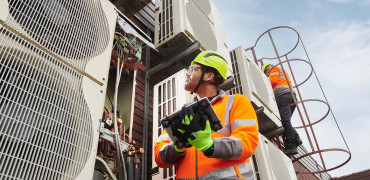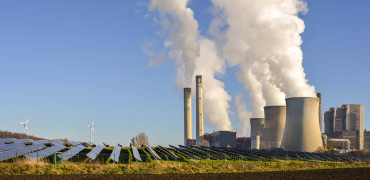As we all strive to play our part in helping the nation achieve net zero, it’s worth reminding ourselves that annually, the construction industry contributes up to 39% of carbon emissions worldwide.
Sustainable construction practices focus on reducing the carbon footprint of the construction industry through methods including, but not limited to, utilising sustainable construction materials, increasing the building's energy efficiency and reducing waste.
Sustainable buildings provide healthier living and working conditions for the occupants
Why is sustainability in construction important?
The UK is committed to reaching net zero by 2050; Every building that is constructed in the UK from now will still be here in 2050, therefore implementing sustainable construction practices on all new buildings is a vital step in order to help the UK to reach its Net Zero target.
Sustainable construction has many other benefits outside of assisting the UK government in achieving its Net Zero goals such as:
Sustainable construction helps reduce pollution and waste.
The construction industry is responsible for millions of tonnes of waste each year, causing pollution to land, water and air.
Landfilling this waste also produces greenhouse gases, further increasing the environmental impact of construction waste.
Not only this, but this waste represents a lost opportunity for material reuse and cost savings.
It can also improve the health and wellbeing of occupants
Sustainable buildings provide healthier living and working conditions for the occupants.
Good indoor air quality has been shown to improve a range of mental and physical health factors.
For example, joint research by Global Action Plan, the Philips Foundation and the University of Manchester shows that reducing air pollution improves children’s ability to learn.
Enhanced Building Performance
One of the core principles of sustainable construction is reducing the energy consumption of the building.
Enhancing the buildings performance through modern, energy efficient products and technologies reduces carbon emissions and saves costs.
How to improve sustainability in construction?
Sustainable construction materials
Concrete production is a high emitting industry, therefore replacing concrete with sustainable materials such as timber or straw bales which also provide a high level of insulation can reduce the environmental impact of constructing new buildings.
Embodied Carbon
Buildings generate emissions throughout their lifetime, from design, build, use and end-of-life disposal.
Much focus has been placed on reducing those emissions produced during a building’s use stage - known as Operational Carbon.
While operational emissions from the built environment are significant, they do not account for the emissions generated through the construction process; the manufacture, transportation, and installation of its component parts or, for the disposal of these at the end of the building’s useful life.
These emissions are known as Embodied Carbon.
For building and construction projects to achieve true Net Zero carbon levels, the embodied carbon footprint needs to be included in the calculation or we are at risk of neglecting a large amount of upfront carbon emissions.
Reducing and offsetting these emissions will help reduce the whole life carbon emissions of a building.
Increasing energy efficiency
Installing energy efficient solutions such as the building's HVAC system can ensure the operational carbon cost of the building is kept to a minimum.
Sophisticated controls can ensure the building is operating at maximum efficiency, reducing emissions and cutting costs at the same time ensuring comfortable and enjoyable working and living conditions for the occupants.
Recycling
Construction projects use an array of recyclable materials in large quantities, meaning there is a great opportunity for the construction industry to reuse or recycle their waste materials.
Even equipment such as air conditioning can be recycled,
Mitsubishi Electric has partnered with Environcom to develop a recycling programme for end of life air conditioning and heat pumps.
In partnership with 3rd party recycling companies this service will give you an easy to use and certificated route for disposal of old equipment.
Reusing construction waste means less raw materials are required, reducing carbon emissions from both landfilling waste and extracting raw materials.
Utilising renewable energy resources
Burning fossil fuels as a means to create electricity is a major contributor to the emissions of greenhouse gases into the atmosphere.
Energy sources such as wind and solar are sustainable as they do not emit any carbon emissions.
They harness the natural power of the earth to generate electricity and these energy sources are renewable as the energy source is not depleted when used.
Mitsubishi Electric can help
Our Sustainability and Construction team is unique in the industry. We offer the ability to share and discuss your target project outcomes with knowledgeable, experienced building services professionals that can provide advice and input on how you could achieve Net Zero targets.
Jonathon Tait is Digital Marketing Executive for Mitsubishi Electric




